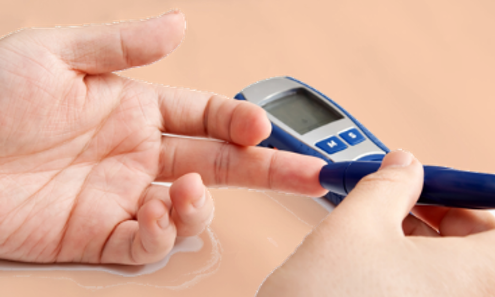Lower vitamin D levels may be linked to higher blood glucose levels in Indian women with pre-diabetes condition, according to a new study. The findings of the study show that 68.8 % women are vitamin D ‘deficient’ while almost 26 % have been marked as vitamin D ‘insufficient’. Just 5.5 % of Indian women are vitamin D ‘sufficient’ which means they have vitamin D in sufficient amount.
New Delhi (ISW): Lower vitamin D levels may be linked to higher blood glucose levels in Indian women with pre-diabetes condition, according to a new study.
Vitamin D is a fat-soluble vitamin produced endogenously when ultraviolet rays from sunlight strike the skin and trigger its synthesis. It is present to some extent naturally in food items like milk, eggs, almonds, walnuts, mushroom, cheese and fatty fish like markerel, tuna and salmon.
The findings of the study show that 68.8 % women are vitamin D ‘deficient’ while almost 26 % have been marked as vitamin D ‘insufficient’. Just 5.5 % of Indian women are vitamin D ‘sufficient’ which means they have vitamin D in sufficient amount.
The cross-sectional population-based study involving 797 women in 20-60 year age group was conducted by researchers from All India Institute of Medical Sciences (AIIMS), Diabetes Foundation (India) along with National Diabetes, Obesity and Cholesterol Foundation and Fortis Centre for Diabetes, Obesity and Cholesterol. The study results have been published in medical journal BMJ Open Diabetes Research and Care.
Researchers measured and analysed vitamin D levels and fasting blood glucose of women who were categorised as pre-diabetic and found that their fasting blood glucose was significantly higher in those with vitamin D deficiency as compared to those with vitamin D insufficiency and sufficiency.
The findings of the study are important as they show that pre-diabetic women may have tendency to develop type 2 diabetes mellitus. Based on results of an earlier study, the researchers note, “pre-diabetes is associated with abdominal obesity, insulin resistance, non-alcoholic fatty liver disease and metabolic syndrome, and such individuals are at an increased risk for developing T2DM and cardiovascular disease.”
“Vitamin D deficiency is extremely common among Indians despite exposure to adequate amounts of sunlight. In this study, we have shown that blood glucose levels are higher is those women who have lower vitamin D levels. These observations have huge implications. Could supplementation of vitamin D decrease blood glucose levels in women? Would it prevent diabetes in those predisposed to develop it? These issues need more studies,” pointed out Dr Anoop Misra, chairman Fortis C-DOC, and a member of the research team.
Vitamin D is known to be an immune system regulator and is crucial for absorption of calcium and phosphorous minerals essential for bones and can strengthen brain function, especially in old age. This sunshine vitamin can reduce the severity and frequency of asthma symptoms and is also known to reduce the risk of developing rheumatoid arthritis in women.
Vitamin D deficiency is a major public health problem worldwide. Although there are several symptoms of vitamin D deficiency, some of the most common ones are chronic pain in muscles and joints despite medication and perpetual fatigue; lower back pain and low immunity are also medical conditions sometimes associated with vitamin D deficiency. However, of all people Asian Indian population, specifically women are more likely to have vitamin D deficiency. This may be owing to their remaining largely confined to households and their typical clothing pattern preventing them to have sufficient exposure to sunlight.


